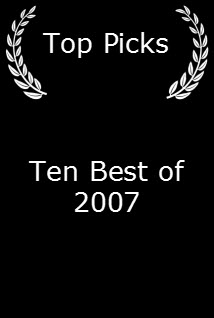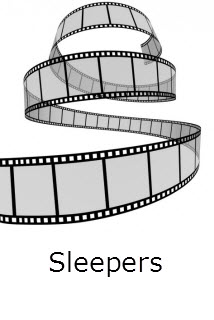Hesher (2011)


Content by Tony Macklin. Originally published on May 15, 2011 @ tonymacklin.net.
Occasionally a movie gets scattershot reviews that leave one with a misleading impression. Given the early reactions to Hesher, I expected a dark, grim movie about a repellant character. I expected a tiresome slog.
The Hesher movie I saw was entertaining and had moments of humor and lively spirit.
Granted, the title character Hesher (Joseph Gordon-Levitt) is not one I would want to spend any time with personally, but he is more than meets the eye. For some viewers he was just selfish and crude.
He is both selfish and crude, but he also is unpredictable, and once in a while he can care about others.
Hesher seems to act -- usually destructively -- on whatever strikes him at the moment. He is oblivious of the consequences, until after an action has happened and left things in flames or shards.
Ironically -- and this is a theme many viewers have missed -- Hesher is a movie about caring amidst grief and violence in an absurd world.
Young T.J. (Devin Brochu) is grieving over the death of his mother in an automobile crash. His father Paul (Rainn Wilson) spends all day at home moping, and his addled but well-meaning grandmother (Piper Laurie) tries her best to keep the home running.
An odd, skinny, black-clad, wraith-like figure Hesher meets T.J. and moves into his home. The four dwellers make one motley crue.
Spencer Susser's direction calls attention to itself -- with almost constant motion, quick editing, and close-ups. But Susser also has a touch for absurd humor and can create dread and tension.
Susser stumbles at the end when he piles on. He has an effective ending. But then Susser tacks on a contrived ending [with a lame parallel to Kilroy]. It's as though he felt the original ending might be accused of sentimentality.
His final credits are schlocky. No sentimentality there.
Susser and David Michod -- who wrote the screenplay for the excellent Animal Kingdom (2010) -- adapted a story by Brian Charles Frank.
The direction and screenplay are passable, but the strength of Hesher is its acting. The acting provides the power and credibility.
Joseph Gordon-Levitt is back to drawing on his natural power as an actor. He's skilled at creating absorbing human trainwrecks.
Gordon-Levitt was remarkable in Gregg Araki's Mysterious Skin -- a movie both I and the LA Times' Kevin Thomas picked as the best film of 2004. At that point I thought Joseph Gordon-Levitt might well be destined to win an Oscar some day.
The potent young actor kept his aura in The Lookout (2007), but in recent years his agent must have tried to shove him into the mainstream.
In the softboiled indie romance 500 Days of Summer (2009), Gordon-Levitt traded on nice amiability. And in Inception (2010) his role and performance were forgettable.
But in Hesher, Gordon-Levitt gets his credible sting back.
Devin Brochu is effective as the fresh-faced lad coping with tragedy. Piper Laurie is memorable as the grandmother who sees through Hesher's image. He comes to care about her, as though she may remind him of someone from his past.
In a key sequence Gordon-Levitt's eyes become slightly more moist in talking to Laurie. It's a subtle moment in an ostentatious role.
Natalie Portman, as a clerk who appeals to the young T.J., expresses vital spirit. Rainn Wilson is limited by the mopiness of his part.
But Hesher basically is Joseph Gordon-Levitt's film.
The kid in black is back.


















